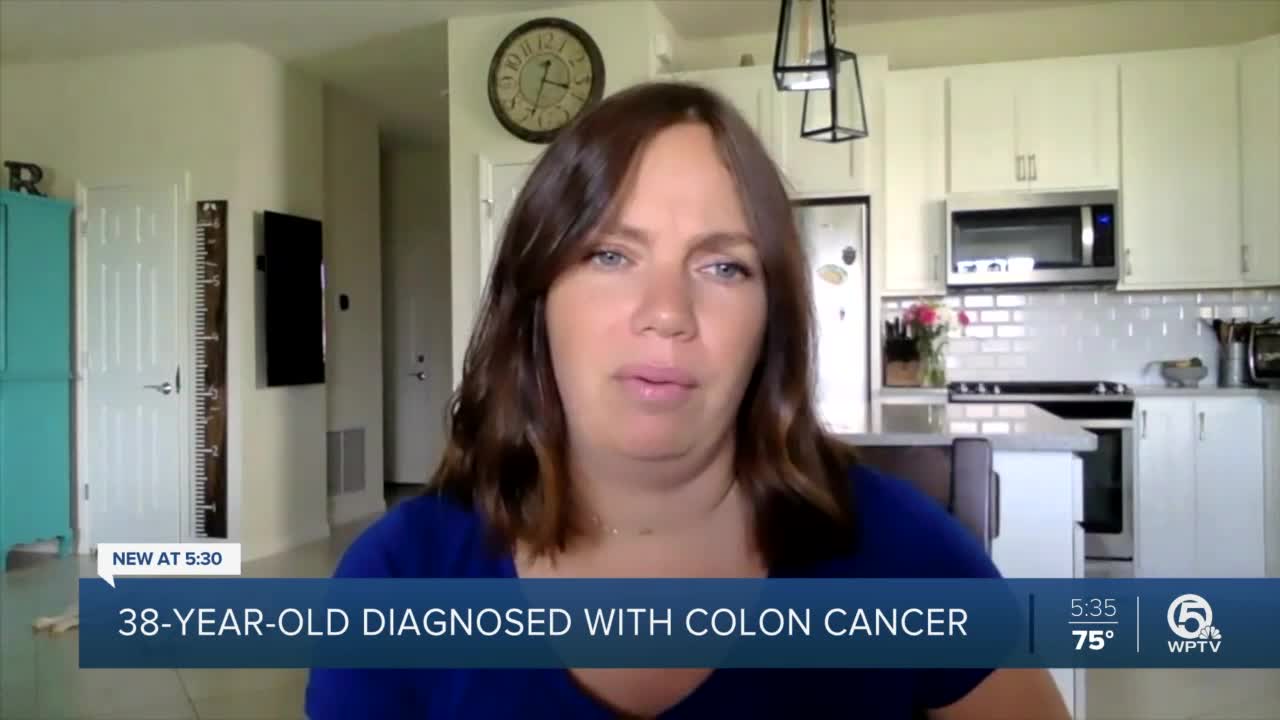STUART, Fla. — March is colon cancer awareness month and a Stuart marathon runner is sharing her experience about recovering from it.
Stephanie Tufano, 38, loves to run.
"Our running community is just amazing," said Tufano.
Tufano's passion has led her to participate in many marathons. But by the end of 2019, an unexpected hurdle changed her life. Tufano asked a fellow runner who was a physician about what she was feeling.
"It hurts right here, and my heart rate is really high. What do I need to do? And he said, 'You need to get blood work.' And I was like, 'No way. I'm not getting blood work. I'm healthy. I'm fine. I haven't been to the doctor in forever,'" said Tufano.
Medical analysis indicated her hemoglobin was low and her iron levels were normal, which doctors said meant she was bleeding internally. After a colonoscopy, she was diagnosed with colorectal cancer.
"It was shocking, obviously," said Tufano.
Dr. Juan Castro Combs treated Tufano at Cleveland Clinic Martin Health.
He said Tufano's case is unusual since she's fit and healthy, plus has no family history of the disease.
"So when I saw it, right away I knew it was cancer," said Castro Combs. "When you detect it early, and you treat it early, there's a good chance you can cure it because, unfortunately, colon cancer is a very slow disease. "
According to the National Cancer Institute, colon cancer is a leading cause of cancer death among people under 50 in the United States.
"We think obesity is part of it," said Castro Combs.
Tufano is now cancer free, married and is now six months pregnant with a baby boy.
“Had I not listened to my body, took the time to get checked out, I probably would have gone maybe another six months or a year," said Tufano.
Know the symptoms:
- Change in bowel habits: Constipation, diarrhea, narrowing of stools, incomplete evacuation, and bowel incontinence — although usually symptoms of other, less serious problems — can also be symptoms of colorectal cancer
- Blood on or in the stool: By far the most noticeable of all the signs, blood on or in the stool can be associated with colorectal cancer. However, it does not necessarily indicate cancer, since numerous other problems can cause bleeding in the digestive tract, including hemorrhoids, anal tears (fissures), ulcerative colitis, and Crohn's disease, to name only a few
- Unexplained anemia: Anemia is a shortage of red blood cells— the cells that carry oxygen throughout the body
- Abdominal or pelvic pain or bloating
- Unexplained weight loss
- Vomiting




